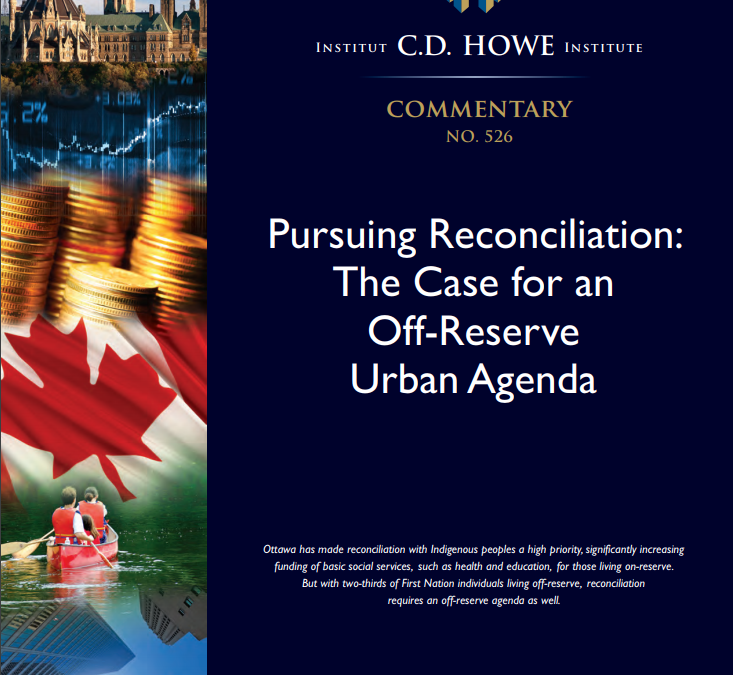A new report from the C.D. Howe Institute says current reconciliation efforts between Indigenous and non-Indigenous peoples lack the necessary focus.
The report, entitled, “Pursuing reconciliation: The case for an Off-Reserve Urban Agenda” by John Richards says Ottawa has largely directed education and healthcare funding to Indigenous people living on-reserve while two-thirds of the First Nations population lives in urban areas.
“The study looks at education, earnings and employment outcomes among different Indigenous populations and compared them with non-Indigenous populations and came to the conclusion that education is a really important factor increasing earnings and providing better opportunities,” Parisa Mahboubi, a Senior Policy Analyst at the C. D. Howe Institute, says.
Richards challenges Indigenous and educational leaders to develop an aggressive strategy for off-reserve students.
“Closing the Indigenous gap is really important,” Mahboubi says. “To have a larger discussion among Indigenous leaders and government officials. They have to sit together, talk and discuss what each representative can do to help the Indigenous population.”
Richards says in a media release, “any meaningful attempt at reconciliation requires not just an on-reserve agenda, but also an off-reserve agenda.”
